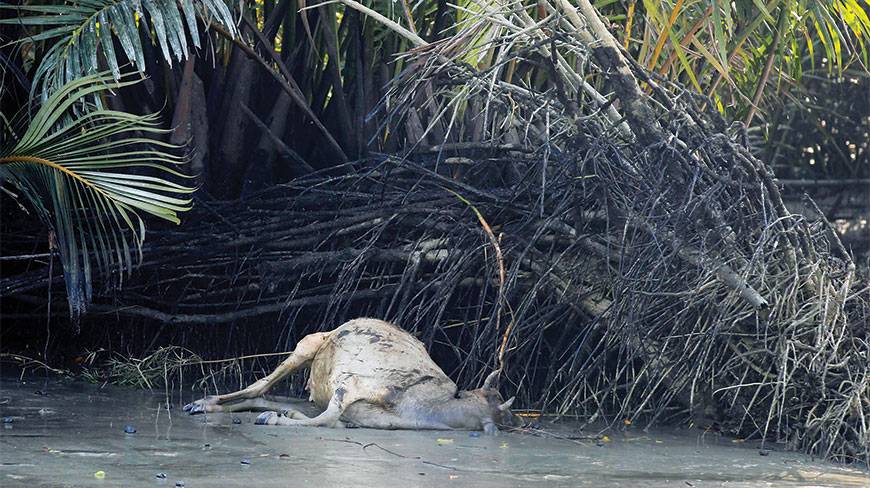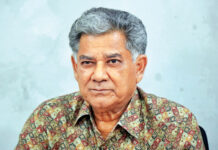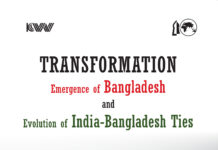Dear UNESCO team (Dr Fanny Douvere, Mizuki Murai, Naomi Clare Doak),
Hello from Dhaka. So, how was your trip to Bangladesh?
Let us not get into the debate over whether a “super critical” “third-generation” coal plant pollutes or not. Let us also not discuss how planet Earth is headed for 3.7 degrees Celsius of warming.
Let us talk instead about the mission you just completed in Bangladesh. Especially the way the government carefully scripted your schedule: Where to go, whom to talk to, what to see, and what not to see.
As your schedule shows, it was obviously a well-formulated mission which was supposed to give you a true picture of the effect of Rampal plant.
Really! Rather, how did you not notice that it was well-organised to hide those who could actually give you the true picture?
You were carefully steered to meet a good number of people with a mindset that remains wedded to a superficial notion of “development.” The ones who look at development merely through the lenses of flyovers and power grids, who deeply believe that coal plants are the best things that can happen to a nation, and who think “the environment” is mere communist propaganda.
Yes, of course, you have got to meet an “independent expert” in your mission. By the way, wasn’t he also a paid member of the 11-member government team that accompanied you throughout the journey? Is that not clear conflict of interest? Wait now, let’s go deeper, wasn’t he the same “expert” who once told the UN assessment committee that the oil spill was no big deal?
While independent scientists spent months to study the deadly effect of the spill on the forest, didn’t the same “independent” guy tell us not to worry about the Sundarbans, as it was strong enough to survive a spill?
So, this time, what did you get to hear? Fly ashes are good for Phytoplanktons? The people of the Sundarbans are resistant to SO2? Mercury chips are the favourite meal of mangrove species?
So, have you got to meet the local people? I mean, not the ones you were scheduled to meet. Not the ones who told you how wonderful it would have been to have drowned in some 7.5 lakh tons of fly ash for a few hundred jobs. We are talking about the real people who lost their only piece of land. The ones who grow Aman paddy on the other side of the river.
Did you meet Mr Susanto Das? The co-ordinator of Krishi Jomi Rokkha Songram Committee, a local platform that has long battled to save local land and fisheries? No, looks like he was not on the state-sponsored itinerary.
Have you got to meet our scientists? Who know the wind, the landmass, the fish, and the vegetation of the Sundarbans?
The algebra of tidal waves and the life cycle of the sediments and the seeds? The ones who know the chemistry, the ecology, the morphology, and the communities of the forest?
Who have been studying the effect of SO2s and NO2s? We know that you have not. In that case, you probably got to hear more nonsense, and less natural science.
Yes, of course, you met the Upazila chairperson, an active ruling party member. Who surely told you how happy the “Rampalese” are to get a 1320MW humongous power plant right in their backyard?
Oh yes, you met the members of the Union Council, the apparently democratically elected “local representatives.” However, have you not done your homework? No meaningful UP elections have been held in Rampal upazila for years. The “locals” you got to meet happened to be the state mouthpieces, according to the real locals.
We wonder, could you possibly have reshaped the design of the mission? Could you possibly have skipped that highly orchestrated “journey by boat,” and instead make an effort to meet those local journalists/activists who were lining up on the bank of Passur River since early morning, March 26? Could you possibly meet the press? Meet the National Committee members? The members of NCSS? Any critical development experts? Any opposition to the plant?
The ones who were trying to reach you by email (which is publicly available on UNESCO and IUCN website) and phone?
Anyone who could have possibly told you about the range of environmental, social, and economic disorders that is about to be delivered by Rampal and Orion?
What are we supposed to make of it? Your lack of understanding of the ground politics? Your faith in “super critical” technology? The Memorandum of Understanding that you had to sign up for? A play-safe strategy? A disregard for reaching out to the dissident ones in advance of the mission?
If you’re allowed to talk to the people as long as they are selected by the government, then, honestly, what were you even doing here? Is that how you work?
Meet the ones who work for the government, don’t bother to meet those who fight for the people, and then go home and write your report? The assignment violated every conceivable moral ground for a UNESCO mission.
Your spectacular inability to meet the dissident voices bears testimony to the fact that the mission has become a farce. It highlights either your lack of concern, or your lack of competence.
If you are still convinced that you met the right people during your Bangladesh trip, then we must agree that the government is a marketing genius.
A good mission should not confuse people with circus, facts with fictions, and taking positions without meeting the right people. Would you keep this in mind while writing your report?
Source: Dhaka Tribune










